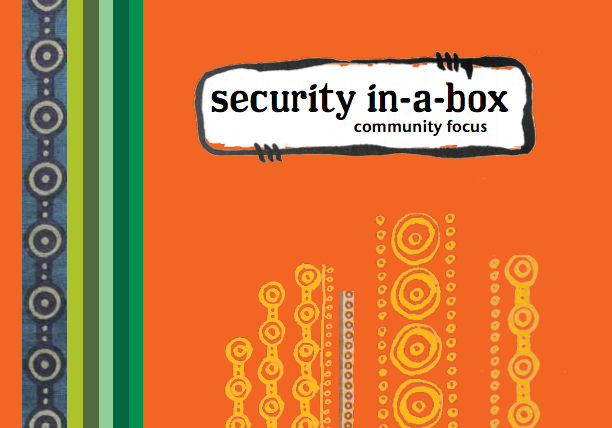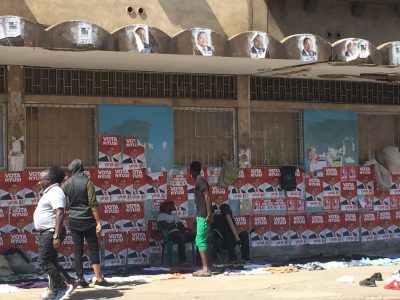A new digital security guide seeks to help environmental rights defenders in Sub-Saharan Africa protect themselves and their communities. Developed by Tactical Technology Collective, a Berlin-based info-activism organization, the guide was developed through a collaborative process with groups working in this field across the region.
 The fight to save the environment and natural resources that impoverished communities depend on is intensifying as oil and gas are discovered in more and more places throughout Africa. The loss of land to agricultural multinationals and the building of mega-dams is increasing. Extraction of myriad other resources and poaching are all at an all-time high. In the middle of all this, environmental rights defenders (ERDs) are struggling to make corporations and governments accountable to the people and to defend the integrity of ecosystems.
The fight to save the environment and natural resources that impoverished communities depend on is intensifying as oil and gas are discovered in more and more places throughout Africa. The loss of land to agricultural multinationals and the building of mega-dams is increasing. Extraction of myriad other resources and poaching are all at an all-time high. In the middle of all this, environmental rights defenders (ERDs) are struggling to make corporations and governments accountable to the people and to defend the integrity of ecosystems.
Reports released by such organizations as Global Witness, particularly the “Dangerous Environment” report, show a sharp increase in known killings of environmental and land defenders by their adversaries worldwide. The report shows that three times as many people were killed in 2012 than 10 years before.
With the growth of technology and increasing use of digital advocacy and communication tools to do their work, ERDs in Africa are increasingly becoming vulnerable to cyber-attacks and harassment. Governments and corporations are targeting ERDs through loopholes left in their digital life.
In response to these trends, Tactical Technology Collective launched a digital security guide targeted specifically for environmental rights defenders.
Since 2012, Tactical Tech has been working with ERDs in Africa to help them tighten security around their digital resources. To develop the “Digital security tools and tactics for Environmental Rights Defenders in Sub-Saharan Africa” guide, Tactical Tech worked with a Kenyan environmental communications and digital security consultant. Collaborators then used a survey to assess digital threats, risks, vulnerabilities and capacities of their target constituencies in Nigeria, Liberia, Tanzania, Kenya, Uganda, the DRC and other African countries where defenders face a constant struggle to protect the environment from the might of extractive industries.
The guide is an offshoot of Tactical Tech’s Security-in-a-Box tool that has served human rights defenders for many years. It is designed to walk defenders through a process of securing their digital resources and information exchange systems so that they can close the loopholes that their adversaries – governments and corporations – could use to either disrupt their work or harm them physically.
The guide covers topics including:
- How to assess your digital security risks
- How to secure your online collaborations
- How to use your smartphone more securely
- How to make a distress call in emergencies
- How to protect your evidence
This guide is designed for use even by defenders with basic computer knowledge and provides links to many useful applications and tools that one can install in their computer to secure their digital life.
Read the guide online: https://securityinabox.org/communities/04
Download the guide in PDF form: https://securityinabox.org/sbox/pdfs/enviro-africa.pdf
A limited number of handy print copies is also available for those who like reading on dead trees.
UPDATE: The guide is also available in French at https://securityinabox.org/fr/communities/04
If you know individuals or networks who may find this guide useful, please share this with them. If you have any questions or wish to learn more about the guide, please email lisa[at]tacticaltech[dot]org or maina[at]kijanimedia[dot]com.




2 comments